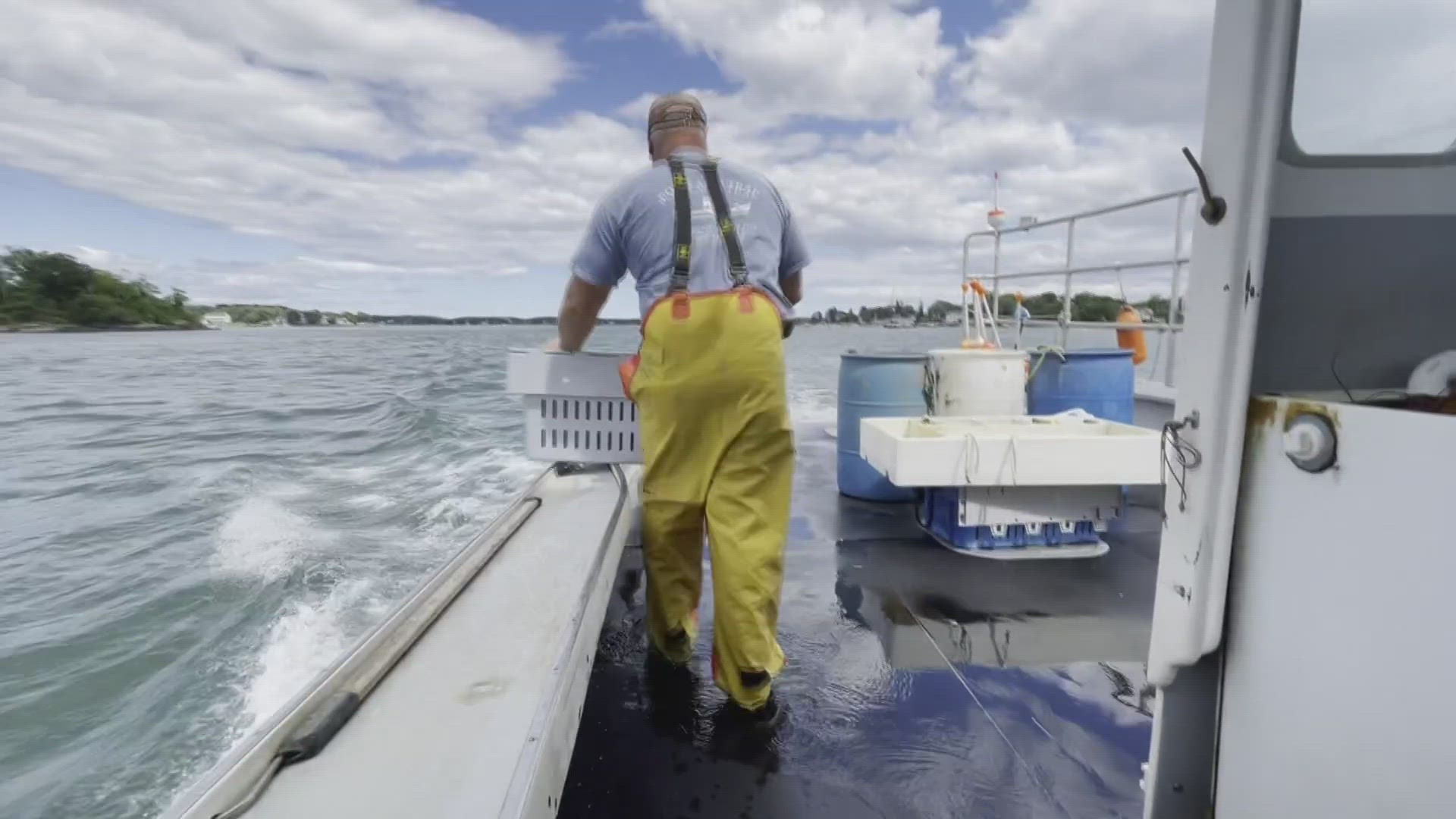PORTLAND, Maine — A coalition representing the Maine lobster industry is suing an aquarium on the other side of the country for recommending that seafood customers avoid buying a variety of lobster mostly harvested in their state.
Industry groups including Maine Lobstermen’s Association are suing the Monterey Bay Aquarium in California for defamation, arguing in a lawsuit filed Monday that their prized catch shouldn't be on a “red list" published by Seafood Watch, a conservation program it operates.
Last year, Seafood Watch put lobster from the U.S. and Canada on its list of seafood to avoid due to the threat posed to rare whales by entanglement in fishing gear used to harvest American lobster, the species that makes up most of the U.S. lobster market.
Endangered North American right whales number only about 340 and they’ve declined in recent years.
But the lobster industry is arguing to the U.S. District Court in Maine that the aquarium's recommendation relies on bad science and incorrectly portrays lobster fishing as a threat to the whales. The lawsuit asks the court to force the aquarium to remove "defamatory statements" from its website and materials, court records state.
"This is a significant lawsuit that will help eradicate the damage done by folks who have no clue about the care taken by lobstermen to protect the ecosystem and the ocean,” John Petersdorf, chief executive officer of Bean Maine Lobster Inc., one of the plaintiffs in the lawsuit, said in a statement.
The aquarium said its recommendations are correct based on the best available evidence. It said right whales are indeed vulnerable to entanglement in fishing gear.
The lawsuit ignores "the extensive evidence that these fisheries pose a serious risk to the survival of the endangered North Atlantic right whale, and they seek to curtail the First Amendment rights of a beloved institution that educates the public about the importance of a healthy ocean," Kevin Connor, a spokesperson for the aquarium, said.
Kevin Lipson, an attorney representing the lobster groups, said the hope is to get the red-listing reversed, so more businesses will sell and consume Maine lobster.
There is already an ongoing legal effort by the Maine Lobstermen's Association that aims at appealing the biological opinion made last year that said the lobster industry didn't do enough to protect the endangered whale.
"We are very concerned that efforts like Seafood Watch... will be increasing in prominence while these regulatory issues are percolating," Lipson said.
Lipson is referring to a six-year extension by the federal government on all new lobster regulations. This also means six years that nothing may change, leaving the red-listing and certification issues by the Maine Stewardship Council.
Last year, that group suspended a sustainability certification it awarded Maine’s lobster industry over concerns about harm to whales. The loss of sustainability recommendations has caused some retailers to stop selling lobster.
Lipson said back in December the lobster groups issued cease and desist letters to the aquarium to remove the red-listing.
"The objective is to pursue the truth. That truth is that Maine lobstermen do not have a detrimental impact," Lipson said.
For fishermen in the industry, the effort to fight the aquarium's ruling is welcome.
Rob Carbajal, a fisherman out of York, said he's becoming a captain starting this season.
"I think it's time we fight back as an industry... it's nice to see we're fighting back and I hope this does something for us to shape the public opinion," Carbajal said. "If you work hard enough, this will be some proving ground for myself and for a couple other guys who are just starting out."
The U.S. lobster industry is based mostly in Maine. The industry brought about 98 million pounds of lobster to the docks last year. That was less than the previous year, but historically a fairly high number.

